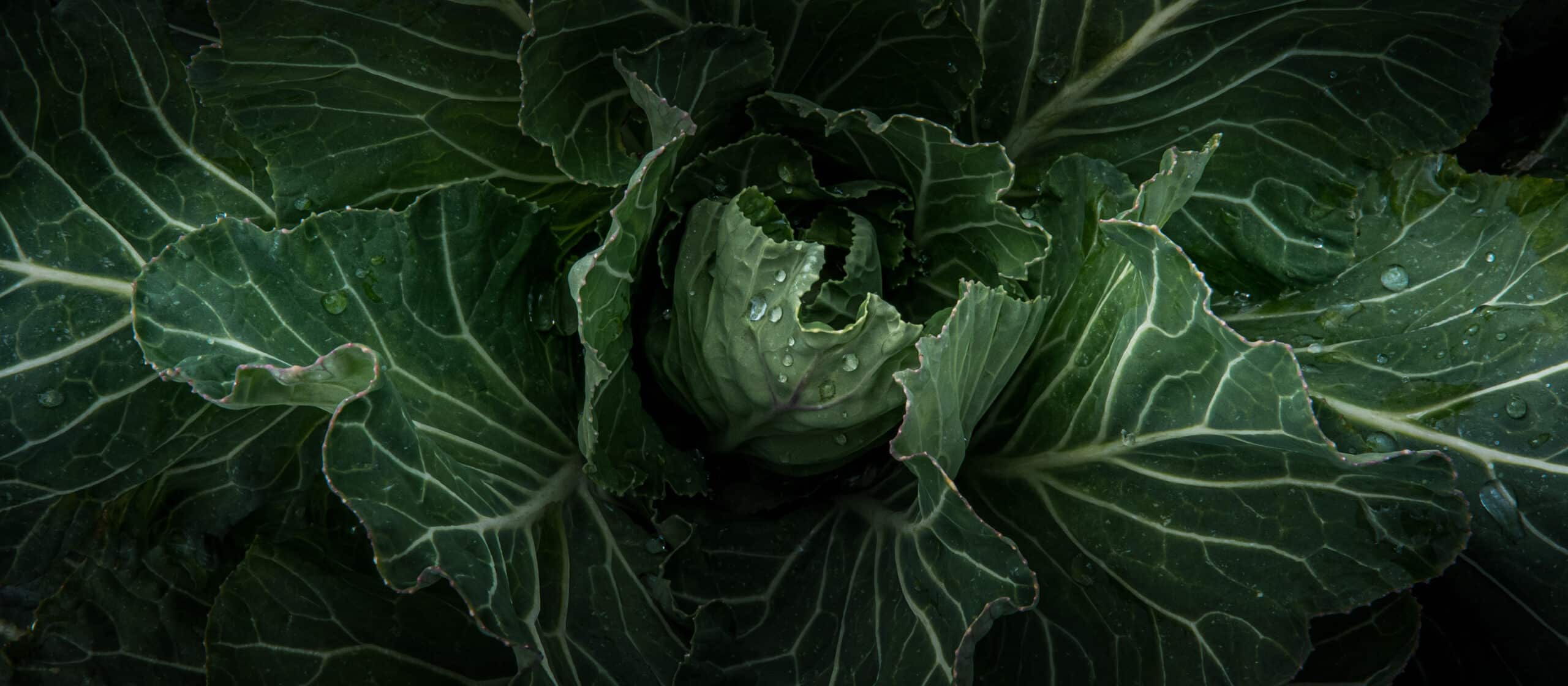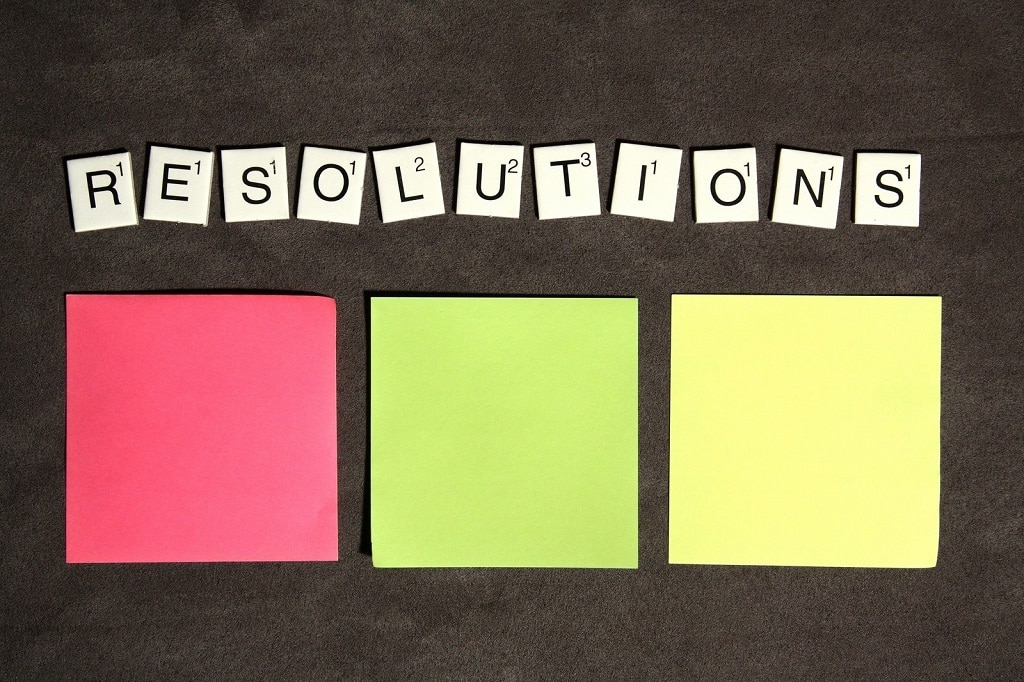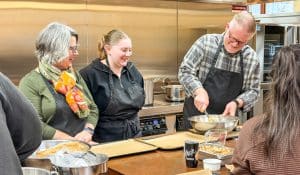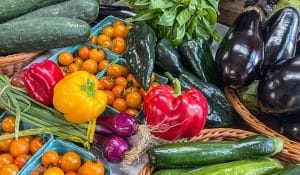
Green New Year’s Resolutions—Resolve to Shrink Your Carbon Footprint in 2019!
Green New Year’s Resolutions—Resolve to Shrink Your Carbon Footprint in 2019!
- posted on: January 1, 2019
- posted by: 21 Acres
"*" indicates required fields

Make this the year you take climate action!
The New Year is the perfect time to examine ourselves and our choices and resolve to make changes that will increase our personal well-being and that of our families, and improve the health of our planet.
If you’re struggling to come up with New Year’s resolutions, we have some suggestions—big and small—for how you can shrink your carbon footprint in 2019.

Below are some ideas for how you can take climate action in the coming year:
1) Recycle! Today there are a lot more options for what and where you can recycle, but it can be hard to keep track of. Don’t be an aspirational recycler—improperly recycled items muck up the works and waste a lot of people’s time and effort (and the issue’s gotten worse now that China’s begun cracking down on the types of recyclables they will accept). Thankfully, there are resources that can help you recycle right. Waste Management’s website can help you determine what items are recyclable, compostable, or garbage… and whether or not special disposal procedures need to be taken. King County’s Solid Waste Division has a fantastic resource—What do I do with?—to help you find local businesses that accept a wide variety of materials for recycling, donations and disposal, including kitchen appliances, mattresses, batteries, electronics, furniture, and more.
2) Cut down on plastic waste. Say no to single-use plastics like straws (learn about the Strawless in Seattle campaign), stoppers, plastic bags, plastic water bottles, etc. Instead, invest in green products… there are plenty of great non-plastic, reusable alternatives. Most grocery stores sell reusable shopping bags in or near their checkout lines, but you can also purchase them online from eco-friendly businesses like gogoBags and Blue Q. If you want to go a step beyond simply buying a reusable shopping bag, Mors Bags provides you with all the information you need to make your own using recycled materials found around your house. Liberty Bottleworks and Klean Kanteen are great places to look for beautiful, responsibly made, metal water bottles, while To-Go Ware, Onyx Containers, and LunchBots offer great non-plastic options for food storage that help prevent food and plastic waste and keep your foods free from toxins often found in plastic containers. EcoJarz is an innovative company that sells Mason jar accessories, like stainless steel lids, that help you convert jars into reusable, plastic-free to-go cups. Check out the 21 Acres Green Resources Directory for more information on specific products and companies.
3) Be an informed and responsible consumer. Know where and how your potential purchases were made and what sorts of materials were used to make them. Try to purchase products that are sustainably produced, recyclable, chemical-free, and organic… they are better for you, your family, and the Earth! Our Green Directory is a great source for finding eco-friendly clothes, cleaning supplies, food, beauty products, household items, and more.
4) Buy local. Patronizing local businesses is not only good for the environment, it’s good for the community!
5) Upgrade your diet. There are many things you can do to eat in a way that is better for you, your family, and the environment such as: cooking from scratch; planning out your meals grocery shopping carefully, so as to avoid food waste; patronizing local farmers markets and local farms that follow sustainable farming practices; cooking with ingredients that are fresh and in season; buying locally grown/produced products that are chemical-free and organic; and eating less meat. Thankfully, there are plenty of resources to help you achieve all (or just some) of these goals. Local Harvest, Eat Wild, Seafood Watch, The Cornucopia Institute, The Eat Well Guide, and The Coop Directory Service are all great organizations dedicated to connecting people with local, responsibly farmed food. The 21 Acres’ Green Resources Directory lists various farms, markets, dairies, bakeries, restaurants, etc. that are dedicated to sustainable, eco-friendly practices.
6) Utilize public transport and other green commuting options as much as possible. Biking and walking are not only great for the environment, they are good for your health. If you don’t have a bike of your own, Limebike is a great option for short distance travel in Seattle, Bothell, and Spokane (they also have scooters and transit vehicles). For those of you who live in Seattle, Car2Go is a local and green alternative to Zipcar. The company provides low-emission, electric cars for members to use at their convenience, offering a simple and green alternative to car-ownership. It can be hard to say goodbye to your car and, for many people, driving to work is a necessity; in that case, consider setting up a carpool with coworkers.
7) Volunteer! Take part in local environmental initiatives like tree plantings, trail clearings, and beach cleanups. Puget Soundkeeper organizes multiple cleanup events every year to protect and preserve the Sound. Food Lifeline is another great, local volunteer organization that creates meals for hungry people with food that would otherwise go to waste. Food Lifeline volunteers sort and pack surplus food collected from farmers, manufacturers, grocery stores, restaurants, and retailers and deliver it to various food banks, shelters, and meal programs across Western Washington. In the spring, summer, and fall, 21 Acres hosts weekly Saturday work parties; volunteers help with wetlands restoration, plant propagation, garden and food forest maintenance, compost making, food harvesting, data tracking, and more. Learn about Saturday Work Parties and other volunteer opportunities with 21 Acres here. Or send an email to: volunteer@21acres.org. Interested in finding other local volunteer opportunities? Volunteer Match and The World is Fun are two great resources for tracking down volunteer organizations near you.
Come visit us at 21 Acres and we’d be glad to talk about topics such as this. We love sharing ideas and resources, including how we make wise choices in purchasing food and other products.
Remember, every little bit helps—even minor lifestyle changes can make an impact. We don’t expect you to do everything on our list, but picking one or two is a great start. Take climate action today!










 back to blog overview
back to blog overview








